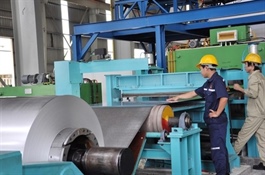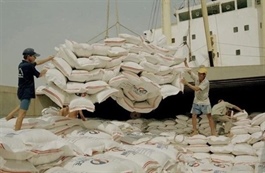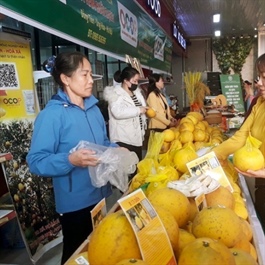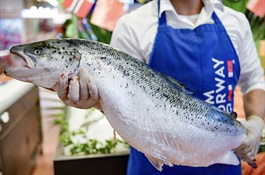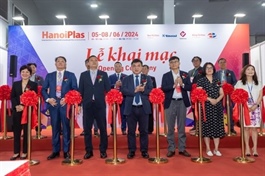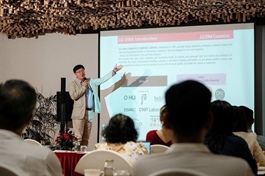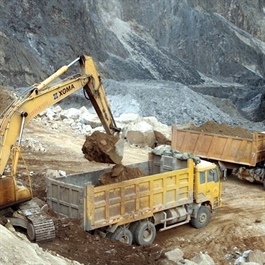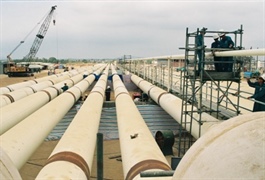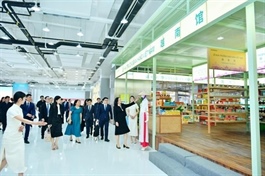Red River Delta needs to professionalise trade promotion activities
Red River Delta needs to professionalise trade promotion activities
Localities in the Red River Delta region need to professionalise and further cooperate in terms of trade promotions, Deputy Minister of Industry and Trade Nguyễn Sinh Nhật Tân told a conference in Hà Nội.
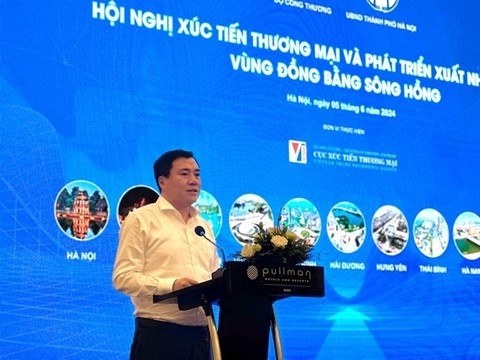
Deputy Minister of Industry and Trade Nguyễn Sinh Nhật Tân speaks at a conference on trade promotion activities in this region held in Hà Nội on Wednesday. — VNS Photo Hoàng Hà |
The Red River Delta region is a leading region in terms of industrialisation, modernisation, research and applications of science, technology and innovation, with a strong and thriving infrastructure.
It includes 11 provinces and cities, including Hà Nội, Hải Phòng, Vĩnh Phúc, Bắc Ninh, Hưng Yên, Hải Dương, Quảng Ninh, Thái Bình, Nam Định, Hà Nam and Ninh Bình.
According to the Deputy Minister of Industry and Trade, it can be developed even further under a decision signed by Prime Minister Phạm Minh Chính, on May 4 (decision 368/QĐ-TTg) which approved a plan through to 2050.
Under this directive, the region is being lined up to have sustainable development, a reasonable economic structure, and modern industry, agriculture, and services. It will be a leader in the development of science and technology, innovation, and the digital economy.
Therefore, the regional localities need to cooperate in developing regional key products in order to identify suitable value chains to exploit the best values of the products, Tân said.
In addition, businesses need to participate in e-commerce activities, which will open up many opportunities to approach customers, cut intermediary costs, and improve product competitiveness, he said.
At the same time, the localities need to coordinate closely with relevant ministries and branches to promote key exports for each period and each target market and build appropriate production and business chains to help the regional localities and enterprises benefit from the chains.
Tân also noted that businesses need to promptly update information about export markets to improve the competitiveness of the regional export products.
They also must participate in trade promotion activities to find business opportunities, including trade promotion programmes of the localities and the Ministry of Industry and Trade.
According to statistics from the Ministry of Industry and Trade, in 2023, the entire region's import-export turnover reached about US$261 billion, the highest value among Việt Nam's six economic regions, accounting for 38 per cent of the national trade turnover.
At the same time, the region attracted the largest foreign investment at more than $17 billion. Five out of the regional 11 localities were among the top ten localities in luring foreign investment.
Located in the Northern key economic region and in the economic growth triangle of Hà Nội-Hải Phòng-Quảng Ninh, Hải Dương Province is a locality with potential in agricultural economic development with many agricultural products having high quality and output.
Vũ Thị Kim Phượng, deputy director of the Department of Industry and Trade of Hải Dương Province, said that promotions for most of the province's agricultural products have applied scientific and technical advances. Those products come from coded planting areas and have Vietgap and Globalgap certification.
Farmers and enterprises have formed production and business chains. Many products are exported in large quantities to many export markets, especially high-end markets such as European countries, the US, Japan and South Korea.
However, Phượng said regional links in the production, consumption, and export of agricultural products among localities, including Hải Dương, face some difficulties.
She was informed that some cooperatives have not participated in the chains of agricultural products and not yet promoted their role of bridging farmers with businesses.
In addition, cooperation between businesses and farmers is not sustainable, and agricultural products are still consumed through many intermediaries, leading to low economic efficiency.
She said there is no regional linkage mechanism to fully promote each locality's potential and strengths, and cooperation between localities in the region is still ad hoc.
The Import-Export Department, Ministry of Industry and Trade reported that export activities of the Red River Delta region have not similarly developed among provinces and cities in the region.
In 2023, 65.2 per cent of the Red River Delta's export turnover came from Bắc Ninh, Hải Phòng and Hà Nội. Furthermore, the exports depended on the FDI sector, which accounted for 73.6 per cent of total regional export turnover.
Vũ Bá Phú, director of Trade Promotion Agency, Ministry of Industry and Trade, said the implementation of regional trade promotion activities still faces some difficulties, especially organisation and resources.
Eleven provinces and cities in the Red River Delta now have many trade promotion centres under different management levels, such as provincial/municipal authorities and local industry and trade departments. This has led to inadequacies in state management and poor efficiency in trade promotion activities.
In addition, some localities have difficulty arranging convenient locations and services to organise regular large scale trade promotion activities.
Even at the three economic growth centres of Hà Nội-Hải Phòng-Quảng Ninh, there is still a lack of exhibition and conference space in order to organise regional and international events to attract investment, trade and tourism promotion activities, Phú said.



